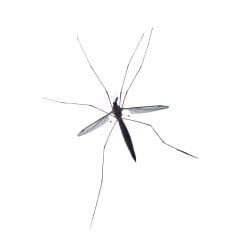Crane flies

Identification
In terms of colour, most crane flies are brown or grayish-brown.
Crane flies can range in size from 15 mm to 25 mm long.
Crane flies, also known as daddy long legs, are insects that belong to the family Tipulidae. They have distinctive body structures. The body of a crane fly is divided into three segments: the head, thorax, and abdomen.
Get A Free Quote
We are affordable Pest Control Service in GTA & Surroundings Areas.
What are crane flies? Where do they live? What do they do?
Crane flies are insects that belong to the family Tipulidae. They are commonly known as daddy longlegs or mosquito hawks, but they are not actual mosquitoes or spiders. Crane flies have slender bodies and extremely long legs that appear distinct.
Crane flies can be found in various habitats, such as forests, wetlands, meadows, and gardens. Adult crane flies feed on nectar from flowers, while their larvae feed on roots or decomposing organic matter. In some cases, their larvae may cause damage to lawns and crops by feeding on the grassroots.
Additionally, some species of crane flies serve as pollinators for specific plants. While they may seem like a nuisance due to their abundance in certain areas, these insects contribute positively to our environment.
Protect your garden from potential damage by addressing the presence of crane flies and Termites with our insightful tips on effective pest control methods.
Do crane flies bite
Crane flies are often mistaken for mosquitoes due to their long legs and delicate wings. However, unlike mosquitoes, crane flies do not feed on blood or bite humans. In fact, adult crane flies do not eat at all. They only live for a few days and their sole purpose is to mate and lay eggs.
The larvae of crane flies, also known as “leatherjackets,” can be found in damp soil or stagnant water, feeding on roots and other organic matter. While the larvae may cause damage to plants, they pose no threat to humans.
Habitat, Diet, Lifecycle
Crane flies, also known as mosquito hawks or daddy longlegs, are common in Canada. These large, flying insects are often mistaken for mosquitoes, but they are harmless and do not bite. Here’s a closer look at their habitat, diet, and lifecycle.
Habitat: Crane flies can be found in various habitats across Canada, including forests, wetlands, meadows, and gardens. They are most commonly found near water sources, such as streams and ponds, as their larvae live in moist soil or water. In general, crane flies prefer damp environments and can often be found in shaded areas with plenty of vegetation.
Diet: As adults, crane flies do not eat at all, as they do not have functional mouthparts. Instead, they focus on mating and reproducing. However, in their larval stage, crane flies are herbivorous, feeding on roots, leaves, and other vegetation. They play an important role in ecosystems by helping to break down plant matter and recycle nutrients.
Lifecycle: The lifecycle of a crane fly can vary depending on the species and environmental conditions. In general, crane flies begin their lives as eggs laid in moist soil or water. The eggs hatch into larvae, which look like tiny worms and feed on plant matter. The larvae then pupate, transforming into the adult crane fly we see flying around. The lifespan of an adult crane fly is relatively short, usually lasting only a few days to a few weeks.
Residential Pest Control Service
Customized pest control treatments can be used to safeguard your living space against bothersome pests and ensure that they don’t become a nuisance in your home.
How to prevent crane fly infestations?
Like most people, you’re probably familiar with the dangers of crane fly infestations. These pests can cause a lot of damage to crops and other plants and structures like barns and homes.
You can do a few things to keep your yard or property free of these pesky pests. Here are some tips:
- Keep your property well-maintained. This includes keeping your lawn mowed and trimmed and shrubs and trees well-pruned. This will help eliminate potential nesting sites for crane flies.
- Keep your property clean. This includes keeping debris and trash away from potential nesting sites and keeping your property clean of pesticides or other chemicals. This will help reduce the amount of food available to the pests.
- Use a barrier treatment. A barrier treatment is one of the best ways to prevent crane fly infestations. This treatment will help keep the pests out of your property by trapping them between the treated material and the surface they’re trying to fly over.
If you’re experiencing Crane Fly problems in your area, don’t hesitate to call ACME Pest Solutions for help. We can help you get your property back in shape and keep the pests away for good.
